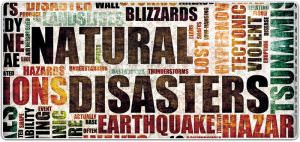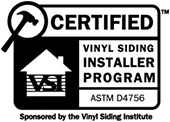 Natural disasters can happen at any time and impact any part of the country. Some disasters provide warning, although many others do not. That’s why it’s important that you’re prepared for the worst at all times. It’s not that difficult to do. Below are some things that you can do to be prepared.
Natural disasters can happen at any time and impact any part of the country. Some disasters provide warning, although many others do not. That’s why it’s important that you’re prepared for the worst at all times. It’s not that difficult to do. Below are some things that you can do to be prepared.
Prepping Your House:
• Find out where utility shut-offs are for water, power, and gas.
• Store household chemicals on a bottom shelf of a closed cabinet.
• Keep all tree and shrub limbs trimmed so they don’t come in contact with wires.
• Store combustible or flammable materials in approved safety containers and keep them away from the house.
• Install smoke detectors on every level of your home and near sleeping areas.
Food & Water:
• Plan for a minimum of three cans of food per person, per day, for a week. Additional food should be stored in the garage. Pay close attention to how the packaging will hold up to damp environments. Cans may rust
unless you protect them—a good way to protect items from damp storage is to put them individually in airtight bags and then pack them inside a food-grade plastic bucket (with lid). Don’t forget a manual can opener!
• Plan to have about 15 gallons of water per person (2 gallons per person, per day for 1 week). Large food-grade, 55-gallon plastic drums are ideal for bulk-water storage. Remember that these water bottles will need to be rotated since they have a limited shelf life unless water treatment is used. Remember also that your water heater in the house is typically 50 gallons and may be used.
Other Important Items:
• Make sure you have a complete first-aid kit. Consider keeping extra prescription medications inside the kit and rotate them to avoid expiration.
• Have multiple flashlights available with a bounty of batteries for back-up.
• Have several battery-powered AM/FM hand radios.
• Make a list of important phone numbers.
• Have a stock of toilet-tissue rolls, paper towels, and premoistened towelettes.
• Keep all-purpose liquid soap on hand.
• Have tooth brushes and paste.
Finally, you should have an emergency plan that includes escape routes and meeting places. Choose both a nearby meeting place and an out-of-state relative to be your check-in contact for the family. Test/role-play your emergency plan with all members of your family present.















